
Alibra School
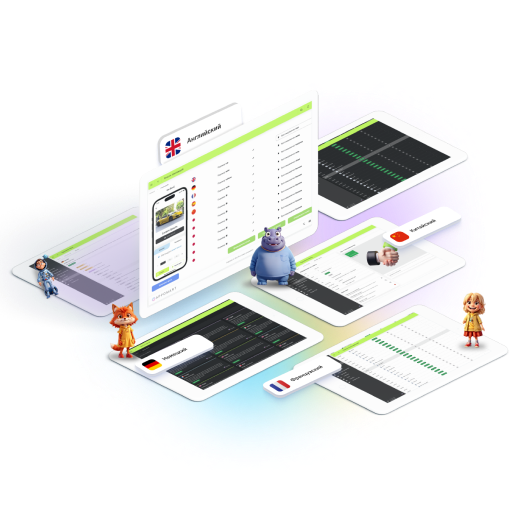
About the project
What has been done
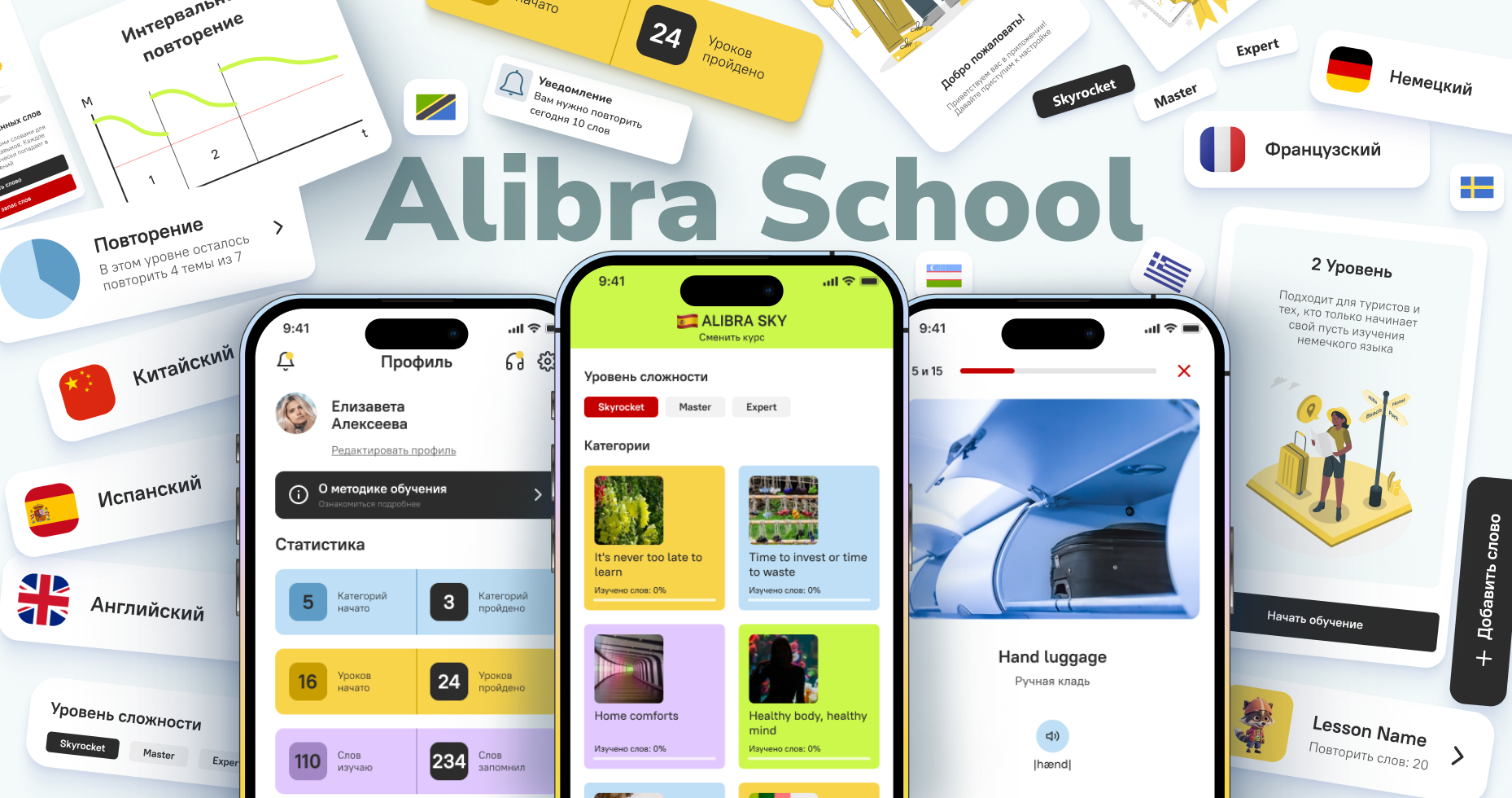
Client Story
The digital era demands flexibility and rapid updates of software products from companies. Objective-C, once dominant in the world of iOS mobile app development, today poses serious challenges for businesses. Supporting and updating outdated apps on this platform is becoming increasingly costly and less competitive.
A clear example of such a challenge is Alibra, the largest language school, which approached Appomart with the problem of maintaining and developing its mobile application in Objective-C. The cost of support was continuously increasing, while the market for specialists willing to work with outdated code was shrinking. Evaluating all possible professional and financial risks, Appomart analysts proposed a strategic transition to the cross-platform React Native technology.
The client also expressed a desire to add new functionality to the existing application, but an analysis showed that the structure of the Objective-C code was so outdated that making changes would require significant rework. This opened the path to a global modernization.
The transition to React Native was not just a change in the technology stack but a crucial strategic decision. The main research results showed that:
- Support for old code was becoming more expensive and technically challenging.
- Investments in developing a new cross-platform version of the application could significantly reduce future costs.
- React Native provided greater flexibility for future updates and scaling.
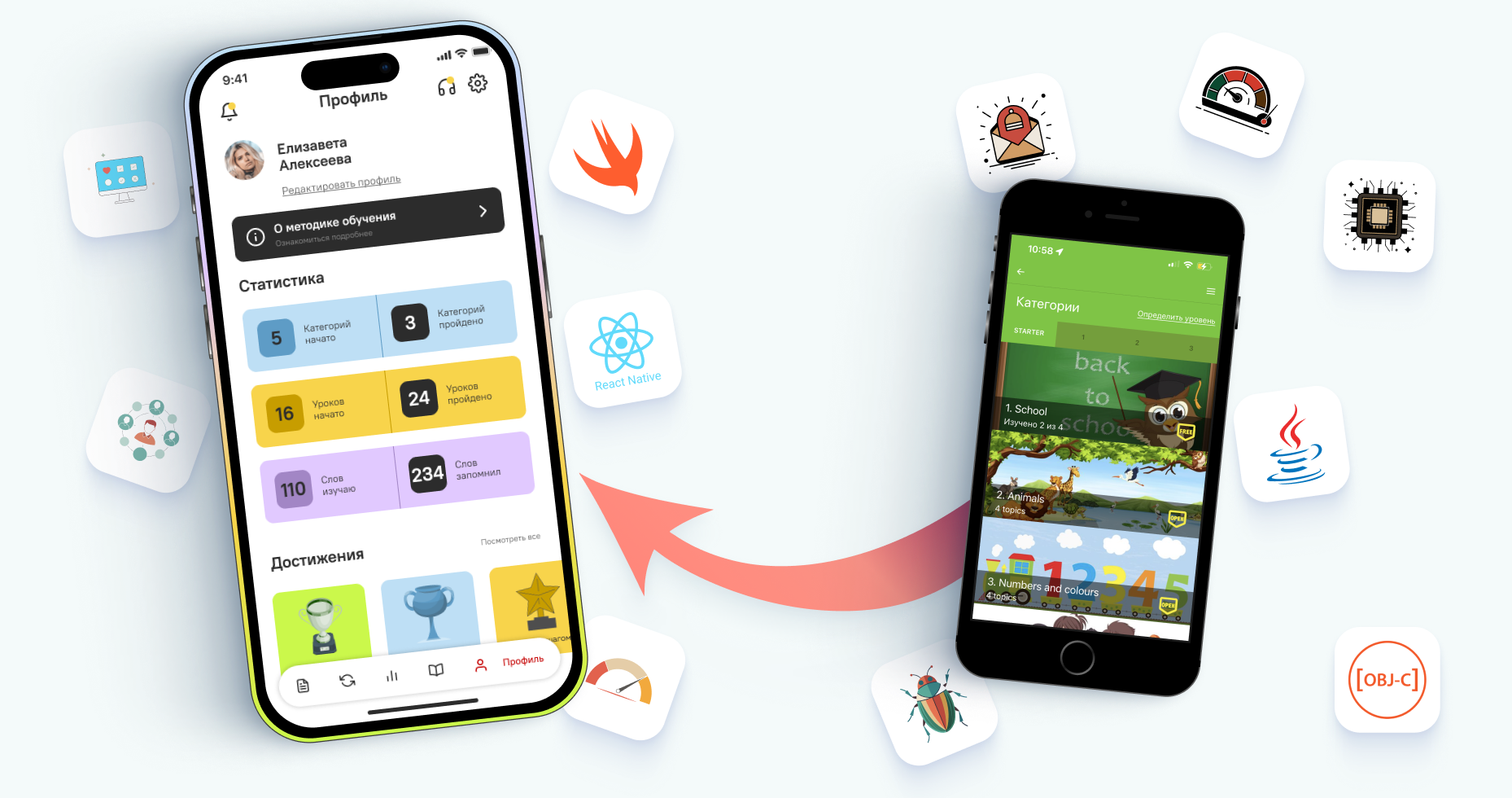
A More Detailed Technological Analysis: Objective-C vs React Native
Objective-C, which was long the foundation of iOS platform development, has impressive system capabilities and powerful frameworks such as Cocoa Touch. It supports dynamic message sending, introspection, and categories for extending classes without inheritance. The language provides high performance, which is critical for intensive computational tasks and rich graphic games.
However, its complex syntax and slow introduction of new features make it less attractive compared to more modern tools. The unclear division into model, view, and controller (MVC) can lead to code clutter, and memory management before the advent of ARC (Automatic Reference Counting) was a major pain point for developers.
React Native, conversely, was developed with a focus on efficient UI. Based on reactive principles and a virtual DOM, it provides developers with the tools to create flexible and reactive user interfaces. It integrates with existing codebases in Objective-C, Java, or Swift, allowing for a gradual transition to React Native in a project while simultaneously speeding up the application development and testing process.
React Native also simplifies state management and component re-rendering in applications when data changes. Thanks to hot reloading and the ability to write platform-independent code, developers can quickly make changes and see results in real-time. Such features, like live reload and fast iteration, make the development process less labor-intensive and more rapid.
While Objective-C remains an excellent choice for creating complex and high-performance applications, especially where close integration with the iOS platform is required, React Native offers a suitable alternative for teams that value rapid development, maintenance simplicity, and code portability between platforms. Such a combination of accessibility, speed, and flexibility typically makes React Native preferable for startups and companies looking to maximize the efficiency of their resources.
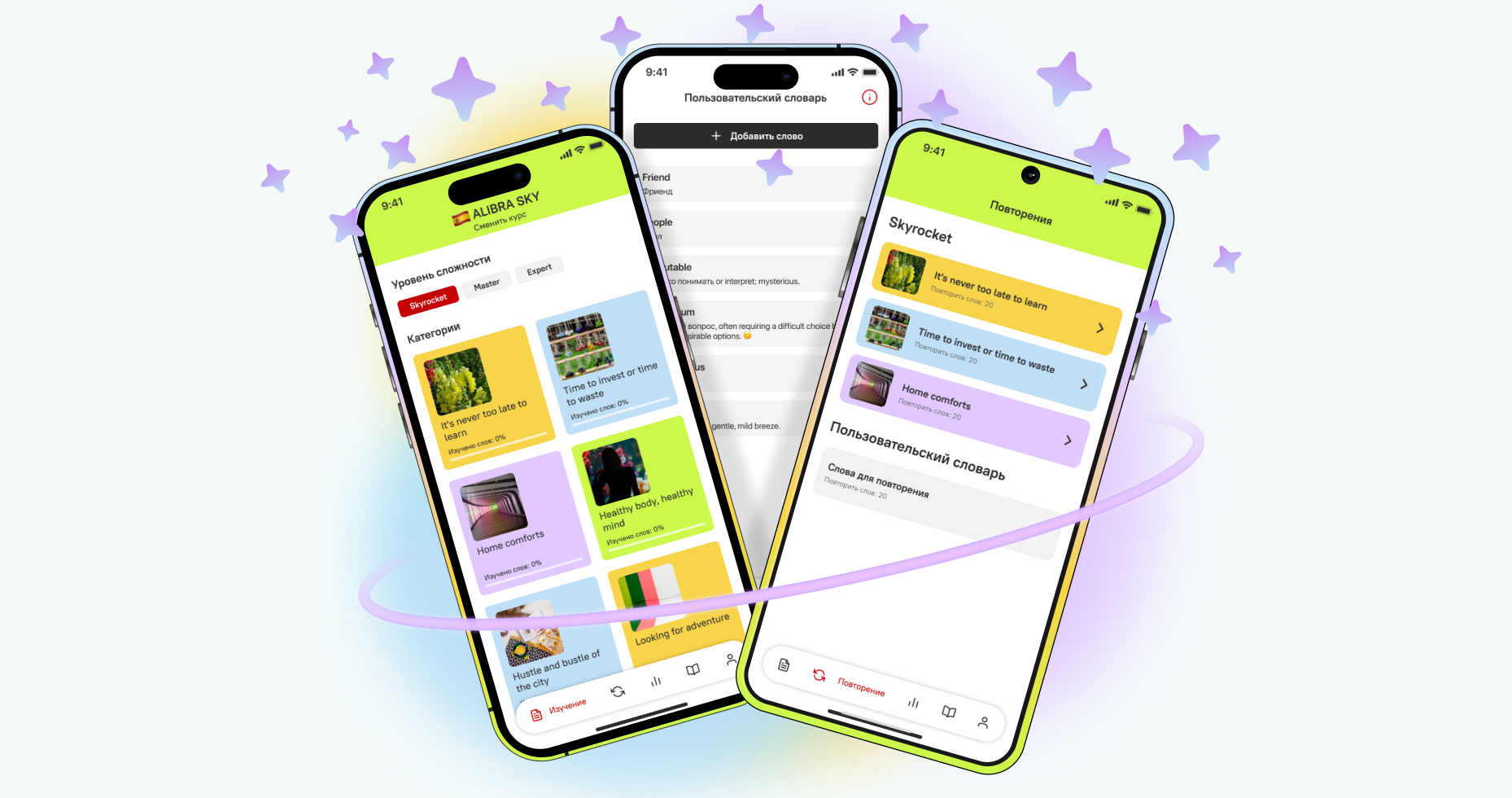
The choice in favor of React Native for a specific project in Appomart was driven by both the desire to optimize the development process and to ensure better scalability, support, and speed of further application updates. This decision will reduce the costs of supporting multiple codebases and speed up the implementation of new ideas.
There inevitably comes a time when some tools give way to other, more modern and effective solutions. The SOAP protocol, which served as the standard for data exchange for many years, is now losing ground to more flexible and convenient REST APIs. The jQuery library, which once revolutionized JavaScript work, is gradually giving way to the standard capabilities of modern JavaScript and frameworks like React and Vue.js. Microsoft's Silverlight and Java Applets have lost relevance, giving way to open web standards and powerful browser engines. AngularJS, PhoneGap/Cordova faces competition from solutions like React Native and Flutter, which provide a more native and smooth user interface.
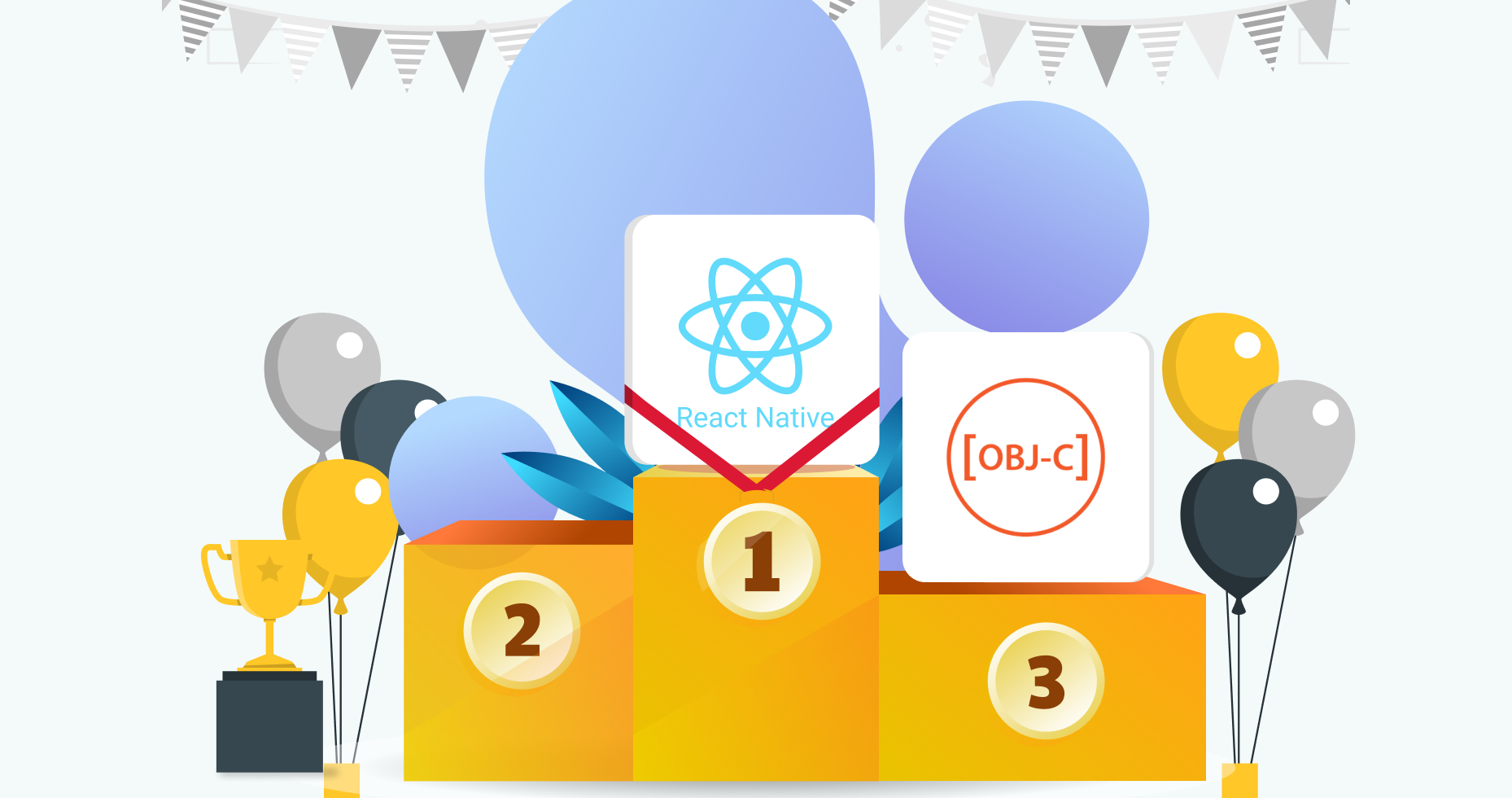
Problems of Old IT Systems and the Transition to Flexible Technologies
The case under review revealed one of the key problems of modernizing outdated IT systems: any, even the most minor change can require unjustifiably large amounts of time and resources. Based on the analysis, it became clear that holding onto outdated technologies means constantly facing product development limitations and increasing operational expenses. The transition to cross-platform development on React Native, on the other hand, opens up opportunities for innovation and simplifies the process of making improvements for our clients. Advanced solutions allow us to shed the burden of outdated code and gain the freedom to adapt the product to current and future market demands.
In the process of planning and implementing the transition to new technologies, we adhered to two main principles: thorough analysis and client orientation. Each step of the transition to React Native, from the preparatory stage to product deployment and testing, was carefully thought out. We worked closely with the client, paying attention to every detail, ensuring that the chosen solution would take into account all aspects and business requirements and bring them to a new level of efficiency.
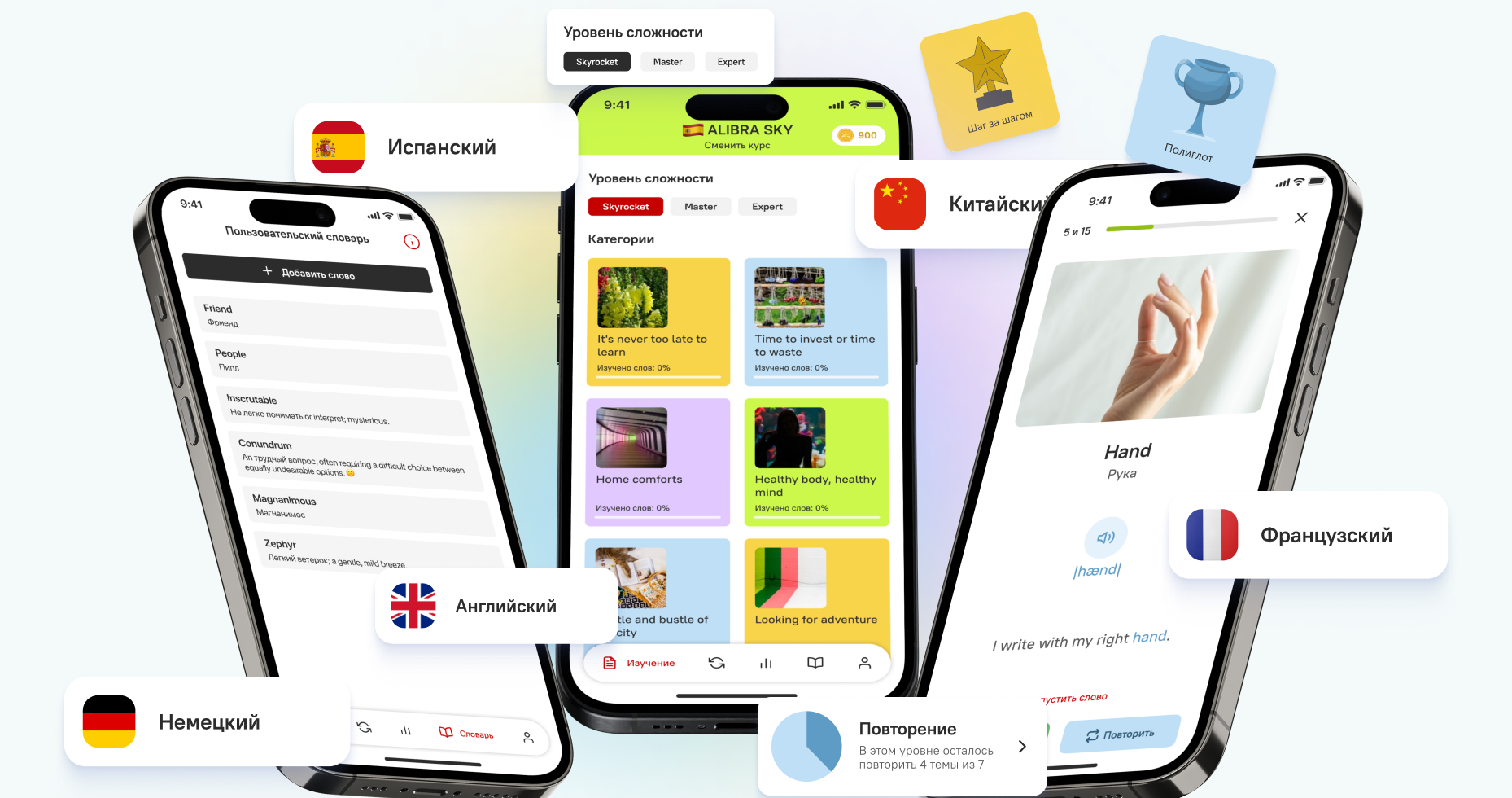
Conclusion
The release of the new Alibra mobile application has opened up many new opportunities for users. We proudly say that this application is not only innovative but also extremely functional, capable of making the process of learning foreign languages as productive and engaging as possible.
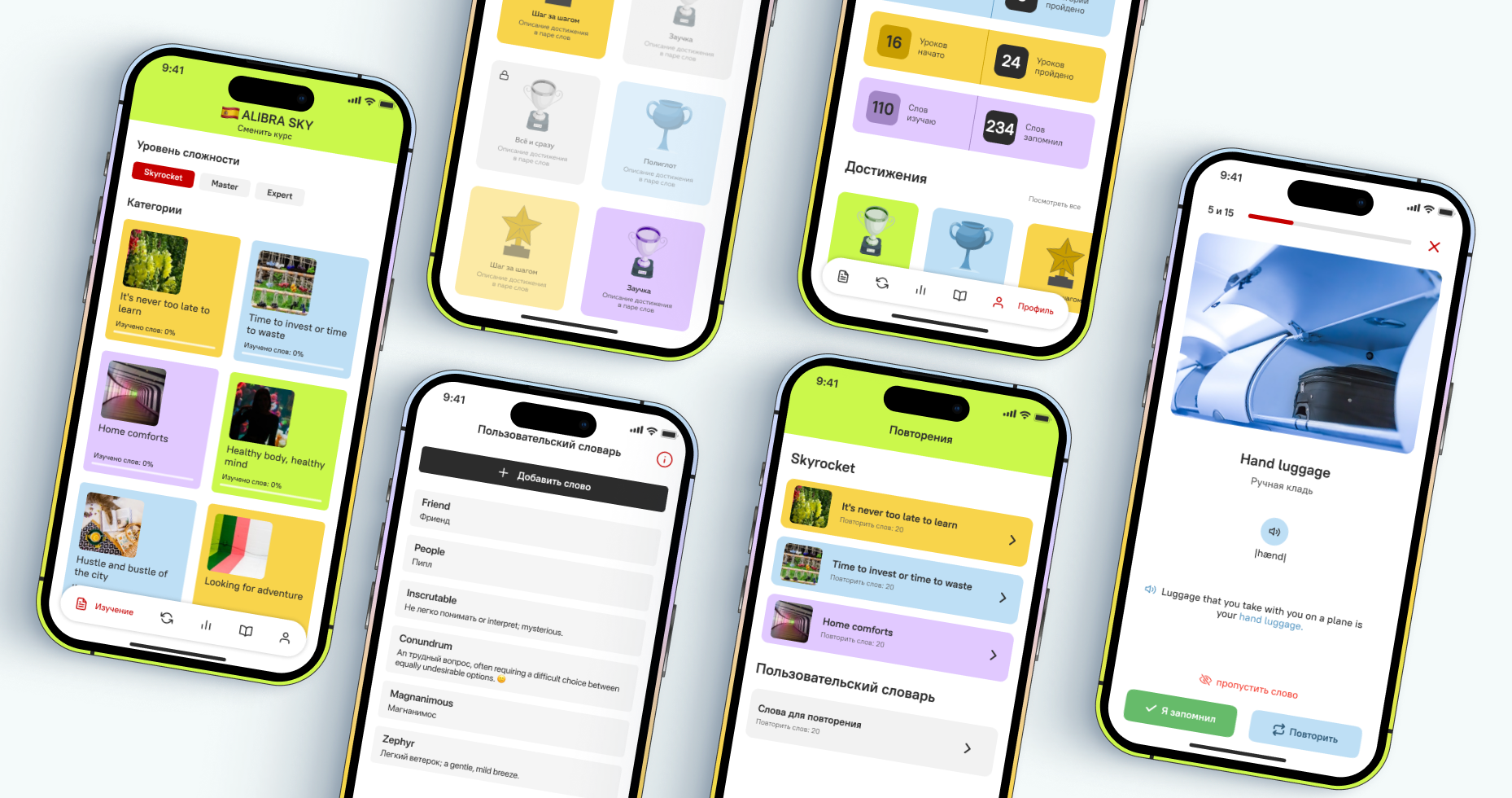
App Features
- Proprietary word memorization technique: The app uses a unique approach designed specifically to enhance vocabulary learning efficiency.
- Reminder and push notification scheduler: Individual reminders are generated for each user, allowing them to maintain constant practice and improve results.
- New course generation: The system allows for the easy creation of new courses with virtually any language pairs thanks to integration with Open AI and Google Translate API. Users can learn any language, from popular European ones to exotic ones like Chinese.
- Flexibility in choosing language pairs: The app allows users to learn a language from any to any, making it a versatile tool for multilingual learning.
- Verified translations: All translations generated by the system undergo manual review by moderators, ensuring the reliability and high quality of educational materials.
- Administrative interface: A full-fledged administrative interface allows managing and editing course content, ensuring flexibility and accuracy in the educational process.
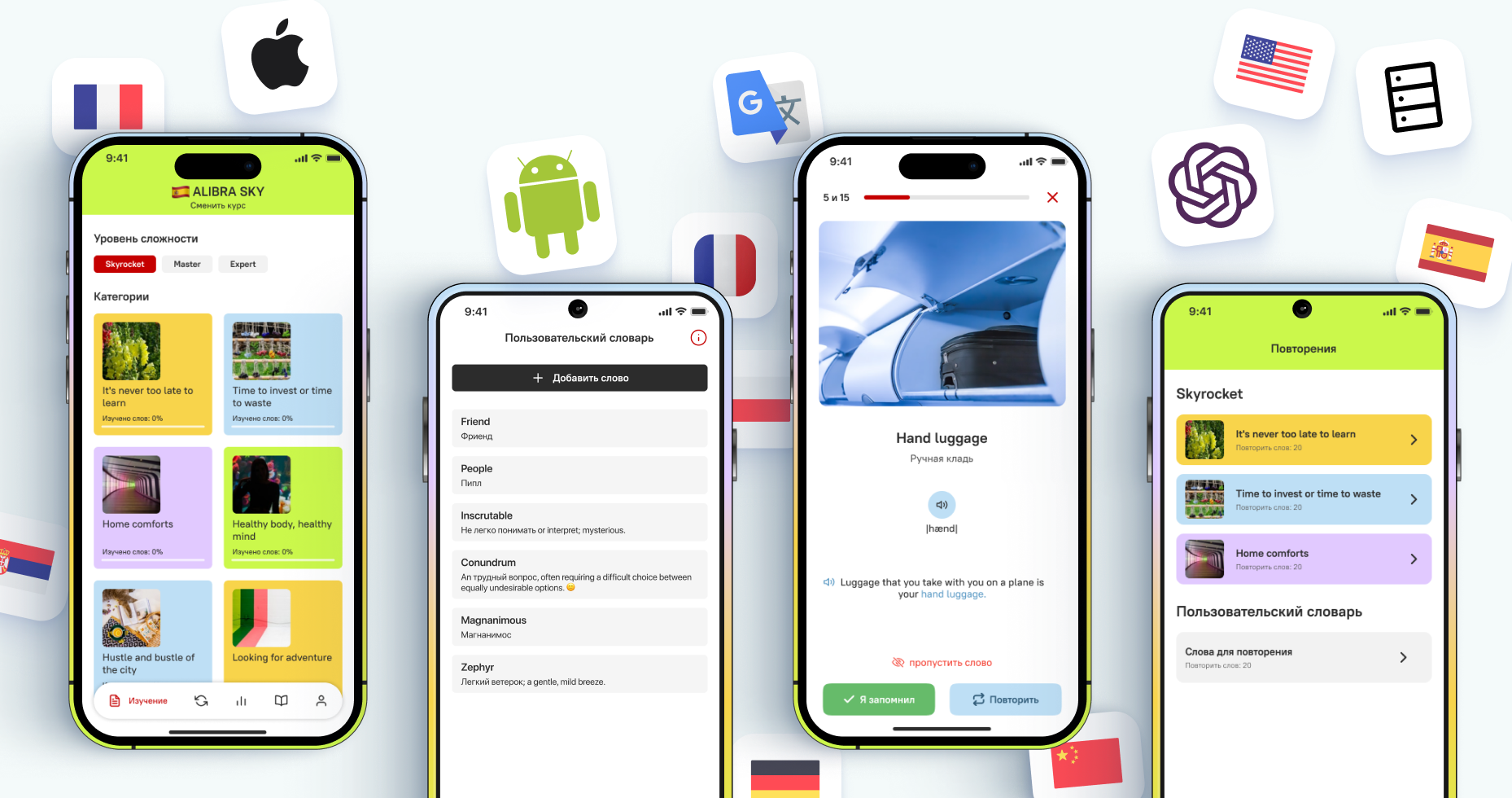
What Was Done
- iOS and Android App: Development of a multi-platform application available for download on iOS and Android devices.
- Server side: Reliable server infrastructure ensuring stable app performance.
- Integrations with Open AI and Google Translate API: Comprehensive integrations enabling the generation and translation of educational materials into any language pairs.
- Administrative interface: Tools for administering and managing app content.
- Concept, design, logo: Complete development of the app's concept, design solutions, and corporate style.
Alibra, the largest company in the region for foreign language education, now has a powerful tool for enhancing educational quality. The mobile application and administrative interface allow precise course configuration, content control, and ensure high quality of the educational process.
The release of the new application represents an important step in the evolution of digital education. We are confident that our collaboration with Alibra will bear fruit not only in optimizing IT costs but also will become an excellent foundation for future educational innovations. If your business also needs modernization and the implementation of advanced technologies, the Appomart team is always ready to offer professional solutions focused on the future.
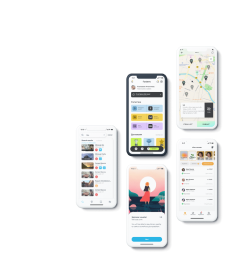
What our customers say
You might be interested in
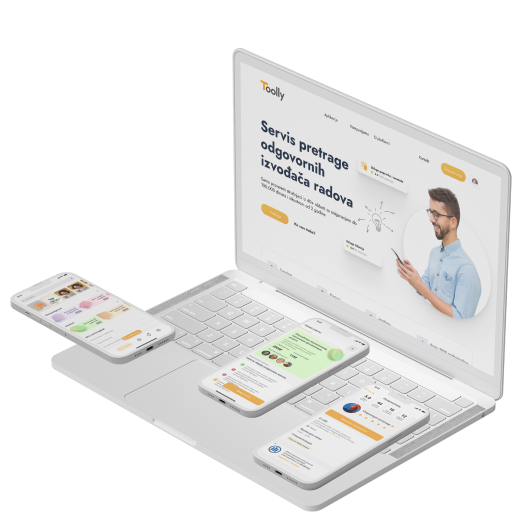

Toolly
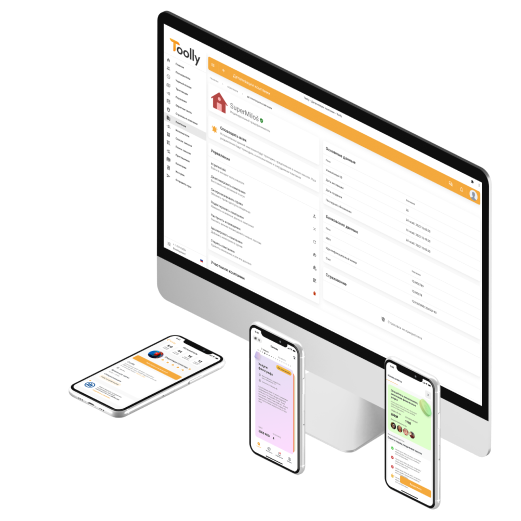

Toolly
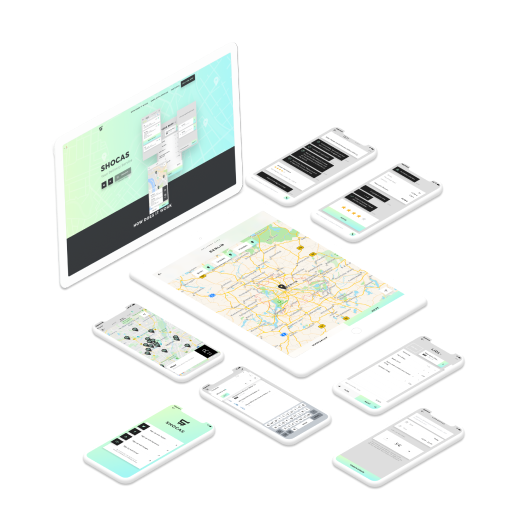

Shocas
Ready to revolutionize your IT landscape? Partner with Appomart, the trusted solutions provider. Let our experts guide you to success with tailored strategies.
Don't hesitate—request a call now! Fill out the form and embark on your digital transformation journey. Secure your future with Appomart today.


